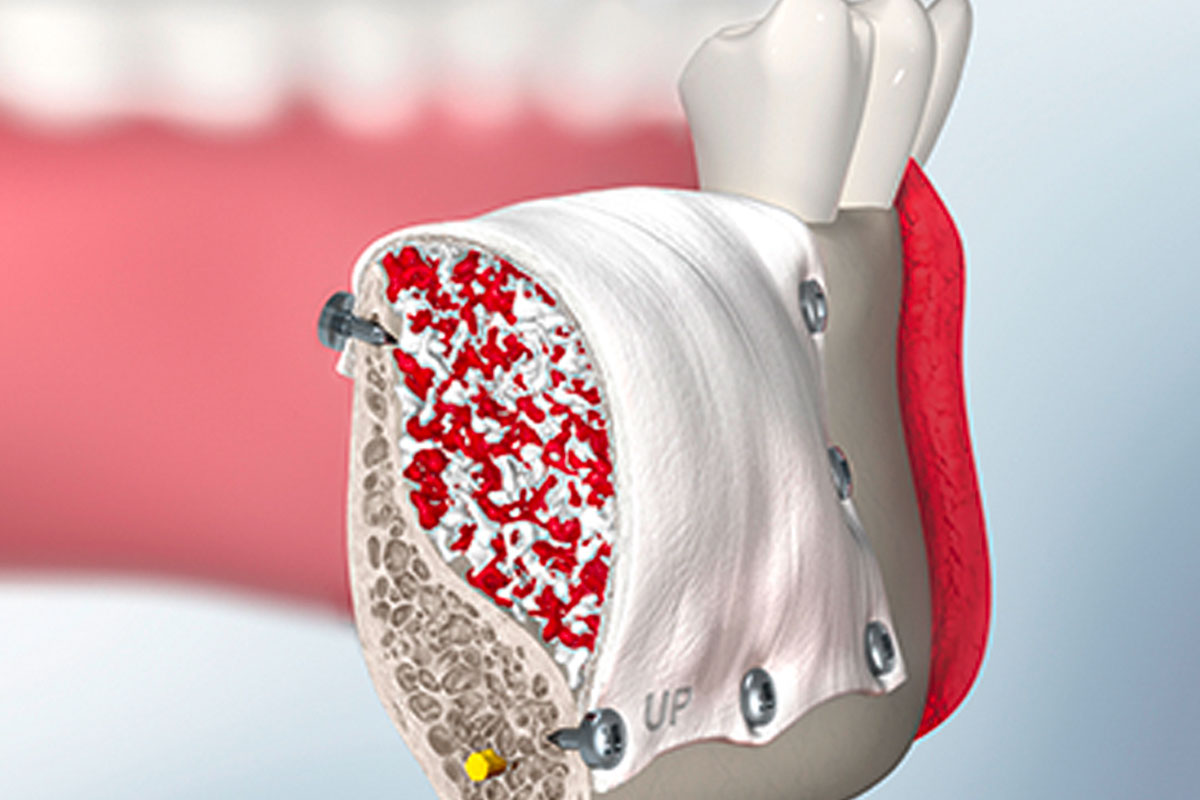Are missing teeth causing you embarrassment or concerns about the stability of your dental implants? If so, bone augmentation might be the solution you’ve been seeking. This dental procedure is tailored to improve the health and strength of your jawbone.
What is Bone Augmentation?
Bone augmentation, also called bone grafting, is a surgical procedure used to strengthen the jawbone, crucial for supporting dental implants and other prosthetics. A dental surgeon prepares the area and places graft material, which can be from various sources, like your own bone or synthetic materials. This graft material acts as a scaffold, stimulating natural bone growth. Eventually, the graft is replaced by your own bone, resulting in a more robust foundation for dental implants or other dental procedures. Bone augmentation can address bone deficiencies in both the upper (maxilla) and lower (mandible) jaws due to tooth loss, trauma, gum disease, or congenital conditions.
Benefits of Bone Augmentation in Dental Health
Bone augmentation offers several significant benefits, primarily improving the success rate of dental implant treatments. Dental implants require a robust jawbone for stability, and inadequate bone density can lead to implant failure. By strengthening the jawbone through bone augmentation before implant placement, patients ensure a solid foundation, significantly enhancing the implant’s success and longevity. Furthermore, this procedure restores facial aesthetics, preventing bone loss-related facial sagging and a sunken appearance, thereby promoting a more youthful look. Additionally, it supports other dental procedures like dentures and bridges, ensuring better outcomes and overall oral health.
What to Expect During a Bone Augmentation Procedure
During a bone augmentation procedure, you can expect the following:
- Consultation: The process begins with an initial consultation where your dental surgeon assesses your oral health and determines the need for bone augmentation. If the procedure is recommended, your surgeon will discuss it in detail and explain various graft material options.
- Anaesthesia: On the day of the procedure, you’ll receive anaesthesia to ensure your comfort throughout the surgery. This may include local anaesthesia to numb the specific area where the graft will be placed.
- Incision: The surgeon will make a small incision in your gum tissue to access the jawbone in the area that requires augmentation.
- Graft Placement: The chosen graft material, which can be autografts (your own bone), allografts (donor bone), or synthetic grafts, will be carefully placed and secured in the desired area of the jawbone.
- Closure: After the graft is in place, the incision in your gum tissue will be closed using sutures.
- Aftercare: Your surgeon will provide you with specific aftercare instructions to follow. This may include guidelines on diet, oral hygiene, and any restrictions on activities. It’s essential to adhere to these instructions for a smooth recovery.
Recovery and Aftercare Following Bone Augmentation
Recovery and aftercare following bone augmentation are crucial for a successful outcome. After the procedure, it’s normal to experience some swelling, discomfort, and minor bleeding. Pain and discomfort can typically be managed with prescribed pain medication or antibiotics to prevent infection.
During the initial recovery period, maintaining good oral hygiene is essential. Gently brushing and flossing your teeth is important. However, avoid putting excessive pressure on the surgical site to prevent disruption of the grafting process.
To protect the surgical site, it’s advisable to follow a soft or liquid diet for the first few days, avoiding hard, crunchy, or chewy foods that could dislodge the graft material or cause discomfort.
Over time, the graft material will integrate with your own bone, becoming a natural part of your jaw structure. This complete healing process may take several months, during which regular follow-up appointments will be scheduled to monitor progress.
Once the bone augmentation has fully healed, you can proceed with dental implant placement or other necessary dental procedures.
Richmond Dental Centre Accepting New Patients
Are you looking for a local dentist in the city of Richmond? The Dental Professionals at Richmond Dental Centre welcomes walk-ins, emergencies & new patients! Give us a call at (604) 273-3368 to schedule a dental appointment.






